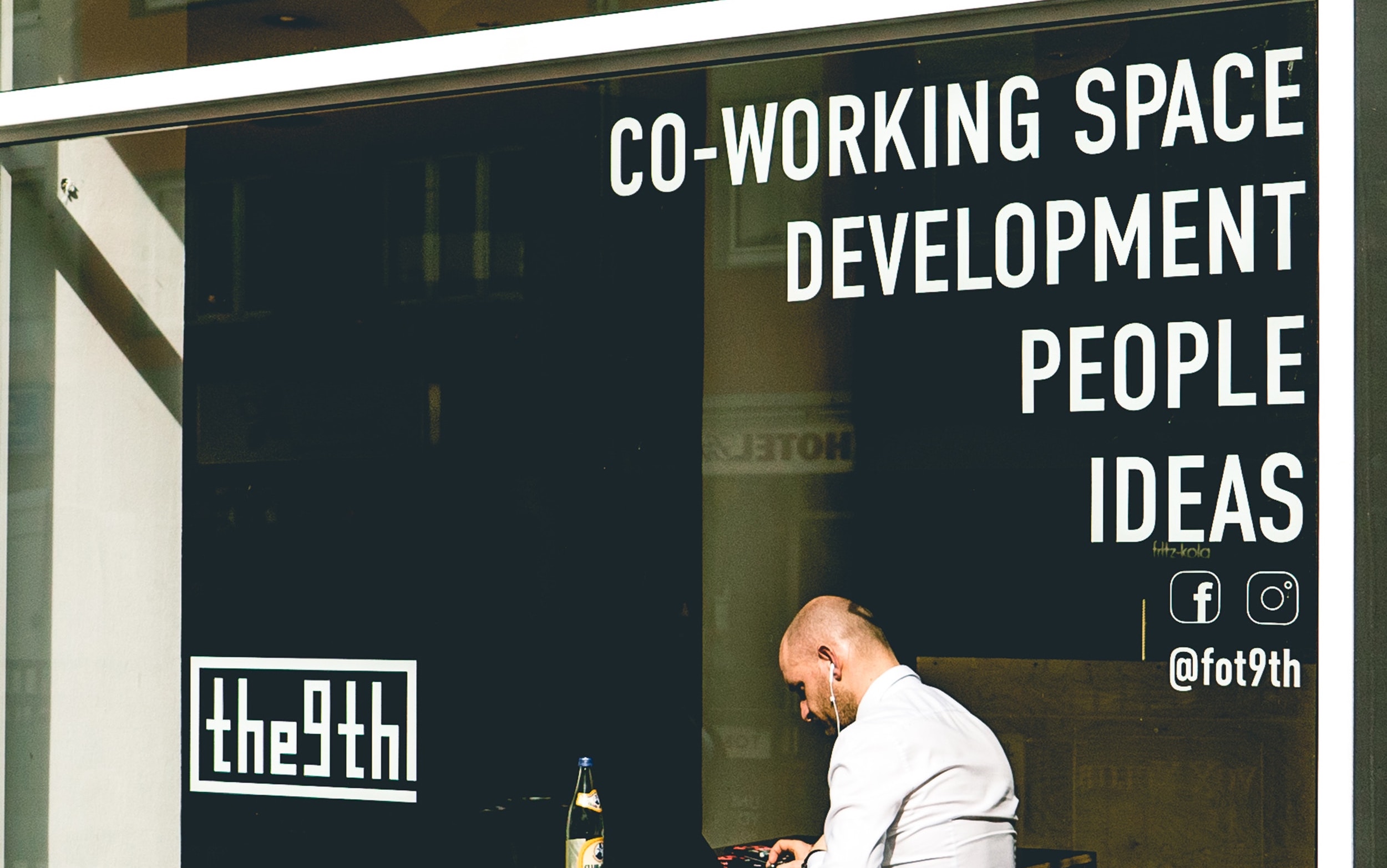What leaders are getting wrong about working from home
This article is more than 2 years old. Some information may no longer be current. Do in-person offices really matter? Malcolm Gladwell certainly...
Manage your equity and shareholders
Share schemes & options
Equity management
Migrate to Vestd
Company valuations
Fundraising
Launch funds, evalute deals & invest
Special Purpose Vehicles (SPV)
Manage your portfolio
Model future scenarios
Powerful tools and five-star support
Employee share schemes
Predictable pricing and no hidden charges
For startups
For scaleups & SMEs
For larger companies
Ideas, insight and tools to help you grow

Remote working is the future of a flexible working pattern. According to the Office of National Statistics, at least half of workers in the UK will be doing some type of home working by the end of 2020. But what if you’re not into the idea of working from your kitchen?
Using co-working spaces is becoming massively popular, with an increase of flexible office space increasing by 10% in 2018. There’s definitely a buzz about co-working spaces and remote hubs at the moment. If you’re looking at putting your business in a shared office space, here are some of the key things to consider.
There are loads of things on offer from co-working spaces, they’ve definitely been listening to their clients. Some things are going to be an absolute must, such as super-fast internet, access to a kettle, and other basic amenities. After that, you need to consider things like:
Once you’ve figured out what want out of the co-working space, think about the space you actually need. A lot of the big co-working spaces offer three basic options
You pay to be able to use any desk that’s available. No space is ever going to be yours to leave your mug and family photo, but it’s usually the cheapest option and a good way to get started with using a co-working space.
The desk you hire is yours and yours alone, great if you’re messy or don’t want to be lugging around a load of paperwork. This can also give you a more professional feel; like you’re actually going to work in an office rather than a business-like coffee shop.
More expensive, but much more private and secure. If your company deals with sensitive data or is just a loud group of colleagues taking calls and bouncing ideas around, you might want to get your own closed-off corner of the co-working space.
This is key when looking at your needs – you’re not aiming for your company to stay static for the next twelve months. Now you may be a company of three, but you need to find a co-working space that can grow with your ambition.
As well as understanding the facilities that you’re going to need long-term, make sure you check out the details of the contract you sign up to. Check the fine print and understand:
Most co-working spaces in the UK have options for monthly agreements, lots have offers of trial periods and offer free months when signing up to six- or twelve-month contracts. Read the fine print so you know what you’re getting now and what you can upgrade to.
One of the biggest bug bears of co-working users is the noise that can be generated by others in the space. There are plenty of people on the other side of the fence who also thrive off the energy that they get from the vibrancy of those around them. You need to decide what is going to work for your company environment.
Be sure to visit the sites that you’re looking at different times of day, Tuesday 2pm is going to look a whole lot different to Friday 11am! While having a look around, have a chat with the current occupants and get their take on things. Find out how they feel about the workspace.
Getting to know your co-workers can be a massive benefit to your growing business too. It’s Entrepreneurship 101 to always be building your networks, so work in a space that is complementary to your mission – whether you want to be surrounded by buzzing creative types or focussed business professionals will dictate where you pick your space.
That old cliché? It is, indeed, one of the most important factors to take into account. Less expensive office and desk spaces are likely to be a little harder to get to, but do you want your client spending 40 minutes on a bus or £30 on a taxi from the nearest train station?
Some other things to look out for are…
Once you’ve put together an online shortlist, go and visit your potential locations. As well as the vibe and the other companies, you should take note of
One insider tip is also to check the soundproofing of the closed office spaces. You might only be taking desks for now, but do you really want to be listening to someone else’s conference call when you’ve got a deadline to hit?
Co-working spaces in the UK are becoming an important part of the business eco-system. Whether your whole company is going to move into one, or you’re a remote worker looking to get out of your own home, they provide support for a growing business.
If you know what you need and want, pay some site visits to get to know the dynamics. You will be making a decision that will propel your business into further success and growth.

This article is more than 2 years old. Some information may no longer be current. Do in-person offices really matter? Malcolm Gladwell certainly...

This article is more than 3 years old. Some information may no longer be current. The sudden shift to remote working in the wake of the pandemic was...

Remote working has moved from being the hot new HR trend to being a valid and increasingly popular working pattern. The Office for National...